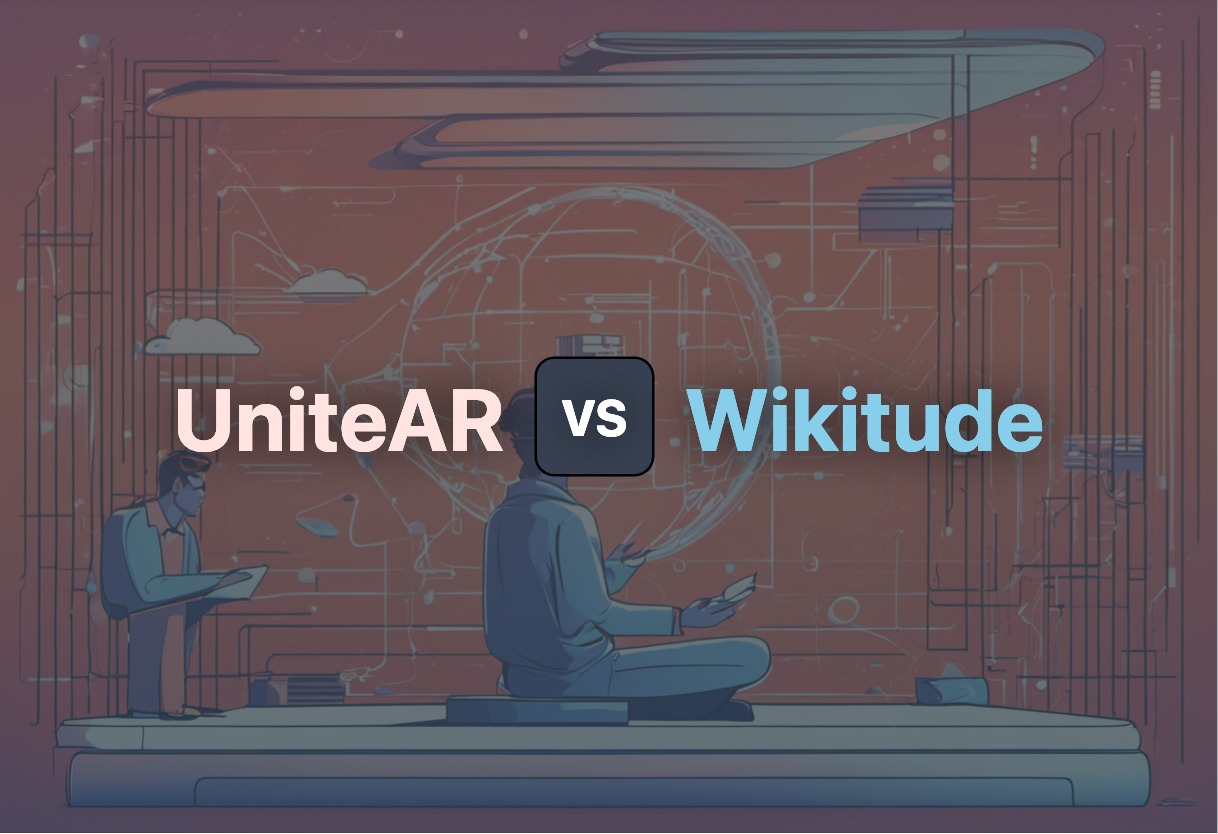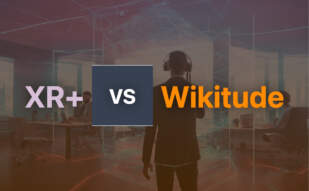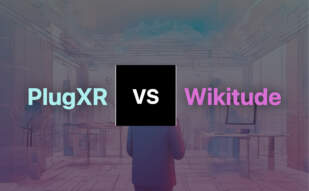For those seeking to create high-quality, engaging AR experiences without the need for coding, UniteAR is ideal. However, for developers looking for advanced AR features and broad framework compatibility, Wikitude, with its versatile and award-winning SDK, proves to be a better choice.

Key Differences Between UniteAR and Wikitude
- Capability: Wikitude provides advanced AR features like multiple tracking, cylinder tracking, and its SDK is compatible with AR Core, AR Kit; while UniteAR focuses on simpler, no-code AR experiences.
- Target Audience: UniteAR is better suited for creators, educators, businesses looking for seamless AR integration. Wikitude targets developers needing sophisticated tools for comprehensive AR applications.
- Privacy: UniteAR does not track user data, ensuring user privacy surpasses Wikitude’s less clear stance on data tracking.
- Compatibility: UniteAR is currently compatible with IOS and MacOS; Wikitude supports Android, iOS, Windows, and is optimized for smart eyewear devices.
- Establishment: UniteAR was founded in 2016 in India, Wikitude started in 2008 in Austria and got acquired by the big shot, Qualcomm, in 2021.
| Comparison | UniteAR | Wikitude |
|---|---|---|
| Technology Focus | Augmented Reality (AR) | Augmented Reality (AR) |
| Platform Compatibility | iOS 11.1 or later, MacOS 11.0 or later | Android, iOS, Windows OS |
| Key Features | 3D models, 360-degree content, videos, animated gifs, image slideshows, custom AR experiences. | Location-based AR, image recognition & tracking, 3D model rendering, video overlay, Simultaneous Localization And Mapping (SLAM) |
| AR Experience Creation | No coding required | SDK (Software Development Kit) provided |
| Funding/Ownership | iBoson Innovations, founded 2016 | Acquired by Qualcomm, 2021 |
| Developer Support | Contact: info@unitear.com | SDK and Expert Edition for Unity experts |
| Use Cases | Marketing, Advertising, Education | High-performing AR solutions, location-based experiences |
| Integrations | Ratings/Reviews | ARKit, ARCore, Unity AR Foundation |
What Is UniteAR and Who’s It For?
UniteAR is an influential player in the augmented reality arena by iBoson Innovations. With over 100 3D models and immersive AR gallery, it provides a robust gateway to interactive experiences. Be it making calls, visiting websites, or recording memorable AR experiences, the app sets no limits. Comfortable for iOS and MacOS users, it’s available in different languages. As a standout feature, UniteAR does not track user data, safeguarding user privacy.
Intended audience comprises educators, creators, and businesses. With plug-and-play ease, it even extends support to enterprises. The SaaS platform facilitates white-labeled AR Apps, AR experiences, and WebAR plugins, all with no need for coding. Use it for marketing, advertising, or make it an educational tool—the versatility is impressive.

Pros of UniteAR
- Intuitive and user-friendly interface
- Offers a free version and free trial
- Supports various languages
- Does not track user data
Cons of UniteAR
- Requires iOS 11.1 or MacOS 11.0 or later
- Only email support available
What Is Wikitude and Who’s It For?
Established in Salzburg, Austria, in 2008, Wikitude stamped its authority in providing location-based AR experiences. It later developed a potent SDK for image recognition, tracking, and geolocation. Acquired by Qualcomm in 2021, the app now extends SLAM tech for object recognition, thanks to this constant evolution.
The app is broadly directed towards developers, AR specialists, and Unity experts. They can exploit its advanced AR features to construct high-performing AR services. With advanced features likemultiple trackers, object visualization, and support for AR Foundation from Unity, it promises a comprehensive AR solution.

Pros of Wikitude
- Updated ‘Professional Edition’
- Offers high-end image tracking and multiple trackers
- Supports ARKit, ARCore directly without integrating them
Cons of Wikitude
- Accuracy of location-based AR under debate due to GPS, compass, and motion sensor limitations
- Highly specialized, not for beginners
UniteAR vs Wikitude: Which AR Powerhouse Wins?
Lets cut to the chase and dive into deciphering the best AR solution for specific audience segments.
Tech-Savvy Educators
If you’re an educator seeking an easier way to deliver immersive classroom experiences without a coding bootcamp, UniteAR provides a robust solution. You can leverage 3D models, 360-degree content, and videos. Plus, the platform respects user privacy making it a secure choice for education systems obsessed with data privacy.

AR-ERP Professionals
For professionals in industries heavy with ERP tasks like installation and maintenance, UniteAR’s XRmeet offers you a powerful digital assistance with AR self-service. An instant aid for tackling those technical issues on the fly.

Passionate Unity Developers
Unity experts, meet Wikitude’s SDK 9.0. Known as the ‘Expert Edition’, this kit grants you the power to create advanced AR solutions with a multitude of features like multiple trackers and object visualization in Unity Editor. A boon for Unity developers aiming to create high-performing AR projects.

Location-Based AR Enthusiasts
If location-based AR experiences tickle your fancy, Wikitude is your perfect match. Its SLAM technology enables precise geolocation, making it an ideal choice for AR apps that work around real world locations.

UniteAR excels for educators and enterprise professionals with simple, secure, code-free AR creation. Wikitude, on the other hand, empowers Unity developers and location-based AR enthusiasts with advanced features and precise geolocation. Your call!
Hannah Stewart
Content writer @ Aircada, tech enthusiast, metaverse explorer, and coffee addict. Weaving stories in digital realms.





